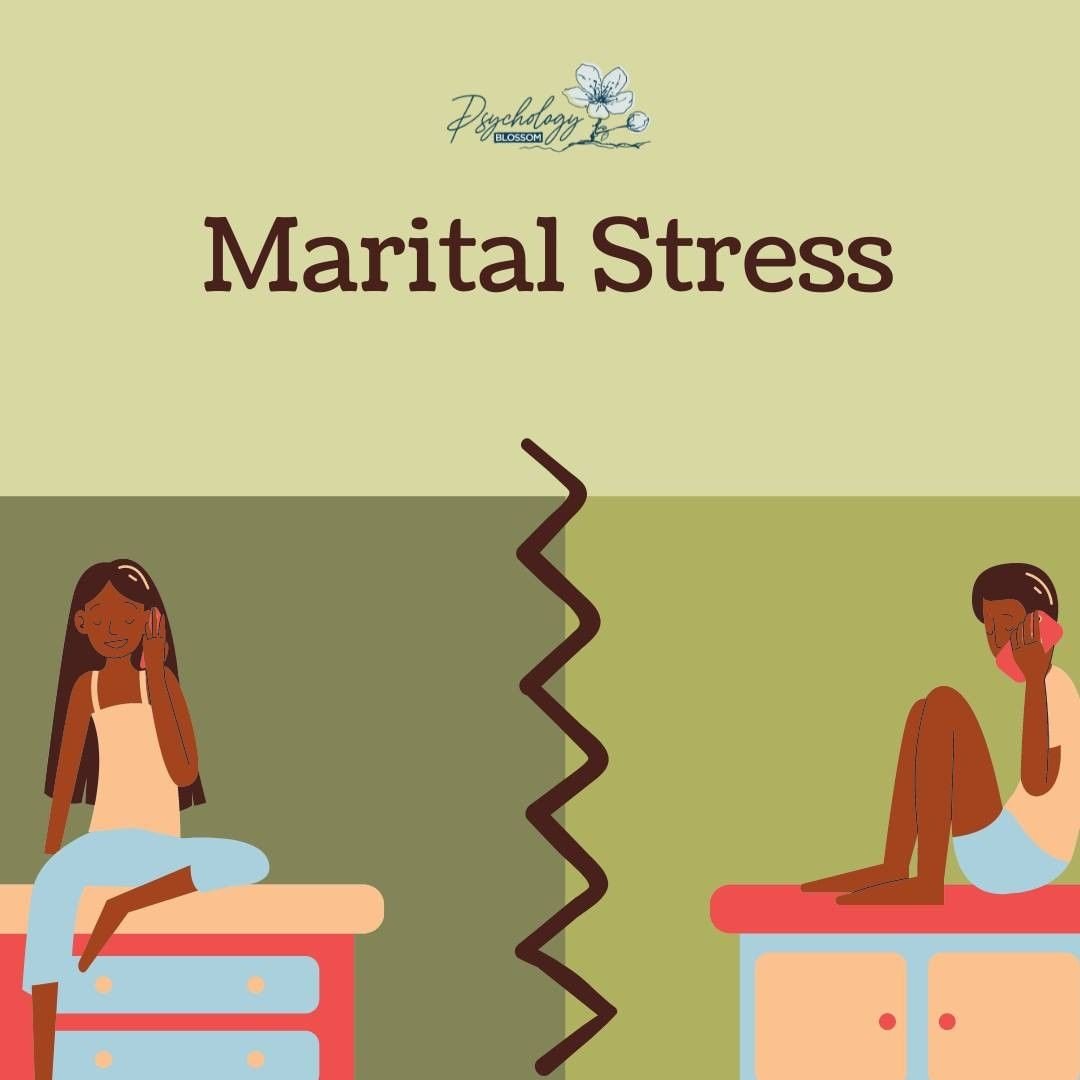Marital Stress: Understanding Strain, Recognising Signs, and Finding Solutions
There are two types of stress: Eustress and Distress. Eustress is a positive form of stress that motivates one to improve their performance. In a marriage, some eustress may be beneficial as it might push both partners to work harder to make the relationship a successful one.
On the other hand, distress refers to stress that has a negative effect on you. Marital distress may lead to negative mental and physical health outcomes. For instance, studies have shown a correlation between marital stress with depression and digestive health.
Stress from negative events can alter the way we react and behave. Consequently, partners may take their stress out on each other, amplifying marital tension. Venting anger and frustrations on one another may lead to feelings of criticism in both parties, even though neither may be the original source of marital stress. This could also lead to retaliation, resulting in a vicious cycle that can slowly erode trust and affection.
Signs of Marital Stress in a Relationship
- Arguments that often do not get resolved, leading to separation or divorce
- Diminished vitality and sex life
- Behaviours such as a complete loss of connection, contempt, violence, and withdrawal
- Signs of domestic violence (In the event of domestic violence, seek help immediately)
Signs of marital strain are not always dramatic. Sometimes, it appears in subtle ways, such as partners spending less time together, feeling emotionally distant, or using sarcasm and criticism in everyday interactions. Left unchecked, these micro-patterns accumulate into larger rifts that become harder to repair.
Some Ways to Deal with Marital Strain and Stress
- Talk with loved ones about your concerns
- Communicate with each other openly rather than condemning and criticising, and try to empathise with each other
- Instead of focusing on the negative aspects of your marriage, consider the positives
- Avoid bringing up past mistakes during current conflicts
- Devise a strategy together and consider how you can address a certain situation
- Find out how you and your partner deal with marriage stress (Some people choose not to speak; others grumble, sleep, consume alcohol, etc.)
- When your partner becomes enraged while under stress, remember not to take things personally
- Allow yourself and your partner to be forgiven
- Make and spend quality time with each other
In addition to these suggestions, building resilience together can help protect your marriage from future strain. This may involve maintaining shared rituals (like weekly date nights), keeping communication respectful even in disagreements, and ensuring both partners feel appreciated. Taking preventive measures when things are going well can make navigating hard times more manageable.
Therapy Methods for Marriage Stress
It may also be good to seek a secondary, objective opinion for your struggles. A therapist can help you and your spouse to understand the causes and conflicts in your marriage and work through them to strengthen your relationship. They can assist you in identifying internal resources and strengths that can be used to rebuild your marriage through good communication in order to reclaim trust and commitment.
Some therapy methods that help with marital stress include:
- Intensive Therapy for Couples
- Gottman Method Couples Therapy
- Schema-Based Couples Therapy
However, even when the need for external help is obvious, some couples may refuse to seek it. Delaying or refusing help can increase the symptoms of marital distress. Thus, should your partner refuse to go through with therapy, you can consider going on your own. Your therapist can work with you individually, offering coping strategies and advice on how to strengthen your relationship. They can also guide you on how to approach your partner about the notion of therapy in a more effective manner.
At Psychology Blossom, our psychologist Claudia specialises in couples therapy, and has much experience in assisting couples and individuals undergoing marital distress. If you think therapy might be helpful for yourself and your partner, you can read more about what she does here.
We recommend This Video to those who wants to learn more about Marital Stress.
